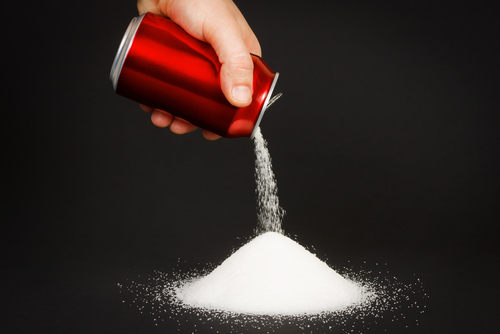Sugar doesn’t really play fair.
Just when you think you can spot it on those ingredient labels (you DO read labels, don’t you?), it changes its name. Maybe you sometimes read plain ol’ sugar, but then again maybe it’s written as fructose or maltose, dextrose or lactose. Whatever “ose” it decides to go by, it’s still sugar and it’s really bad for you.
But do you know just how bad?
Sure, you’ve heard sugar is bad for your teeth, and that all of those empty calories go right to your waistline and eventually you develop diabetes and heart disease. You may have even read that sugar, not salt, is the real culprit behind high blood pressure.
But there is now mounting evidence that consuming high levels of sugar can negatively impact the health of our brain, causing a decrease in cognitive function as well as psychological wellbeing.
Now you may be thinking, “Hey, I have nothing to worry about. I don’t eat that much sugar.” Well, that may or may not be true.
You see, there are hidden sugars in many packaged foods. Even ones you wouldn’t think like soup and cereal. So while you may not eat candy or drink soda, you may still be eating far more sugar than you should. And this is bad news for your brain.
Here are some reasons why too much sugar is bad for your brain:
Sugar Addiction is a Real Thing
Our brains need glucose to function. So in order to ensure it gets just enough each day, the brain developed a reward pathway. When we eat sugar, this reward pathway is stimulated and you feel all unicorns and rainbows. Life… is… goooood.
Since life feels this good with a little bit of sugar, your brain tricks you into eating even more sugar through the craving mechanism. Oh man, now life feels OUTSTANDING. Until you crash.
But your brain has now become an addict, and the more that reward pathway is stimulated, the more sugar it demands to get high. In this way, sugar is absolutely no different from cocaine or heroin.
Of course, while you’re giving your reward pathway what it demands, more and more sugar, you are also becoming obese and developing diabetes, hypertension, and heart disease.
Impaired Learning and Memory
Diets high in sugar and saturated fats promote oxidative stress in the body, and this ultimately leads to cell damage and eventually cell death. Oxidative stress is what leads to aging and disease.
Researchers from Perdue University found that a three-day diet of increased sugar and saturated fats resulted in impaired hippocampal function (learning and memory), causing the rats to have difficulty finding food within a maze.
Does this sound familiar? Do you generally feel like you’re in a daze and have a hard time thinking of or remembering things? There’s a very good chance this is caused by eating too much sugar.
Depression & Anxiety
One of the nastiest side effects of consuming too much sugar are the very big resulting mood swings, irritability and anxiety. When you feel like this, the first thing your body tells you to do is eat more sugar. This moodiness, irritability and anxiety are signs of detox. When your brain has become addicted to sugar, as most of ours’ have, the slightest decrease causes us to feel bad, real bad. Quick, where’s our next sugar fix?
This shouldn’t deter you from trying to quit sugar. While there will be a bit of a hump to get over, you will feel stable mood-wise once you get over that hump.
It Leads to An Increased Risk of Alzheimer’s and Dementia
As I mentioned earlier, high levels of sugar consumption lead to oxidative stress, which leads to aging and the development of numerous diseases. One study conducted in 2013 found that insulin resistance and blood glucose levels, which are the hallmarks of diabetes, are linked to a greater risk for developing age-related cognitive disorders like dementia and Alzheimer’s. In fact, sugar and diabetes have become so naturally linked to the development of cognitive degeneration, that some scientists are now calling Alzheimer’s “Type 3 Diabetes.”
Look, the jig is up. We know far too much about the damage sugar causes to our health. I enthusiastically encourage you to cut back on sugar or eliminate added sugar completely from your diet. The sugar naturally found in fruits and veggies is fine, that’s all our brain and body needs. It’s the added sugar that is causing so many problems, especially for our brain.
There are other things you can do to keep your brain healthy as you age. In fact, I’m going to let you in on a little secret: None of us ever have to develop Alzheimer’s or dementia.
If you or a loved one has been diagnosed with either of these, the diagnosis does not have to be a death sentence.
There is a doctor who has worked with the elderly and, by using a specially-designed brain-conditioning program, has been able to reverse the signs and symptoms of these diseases. He has written a guidebook on his program and would like to share a copy with you.
It’s called “The Unbreakable Brain,” and it has already changed the lives and health of many people. Click Here to pick up your copy today.
 Validating...
Validating... 





Leave a Reply